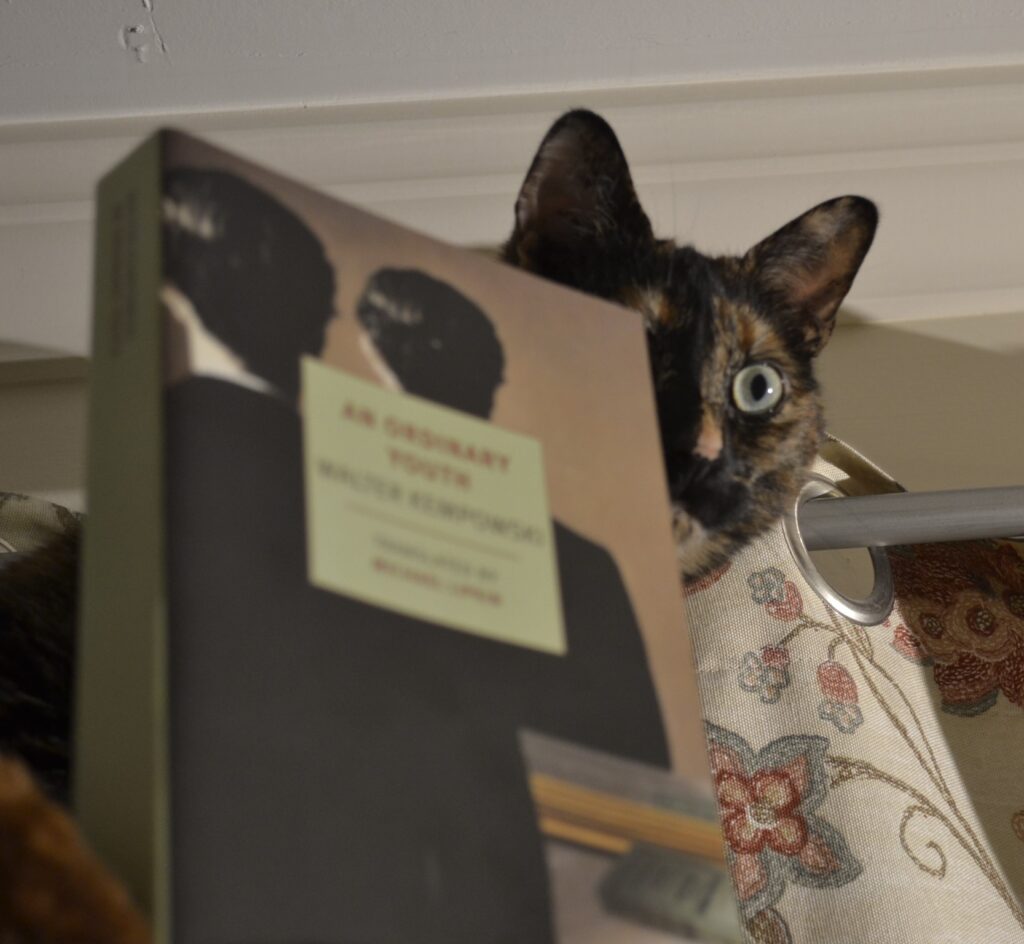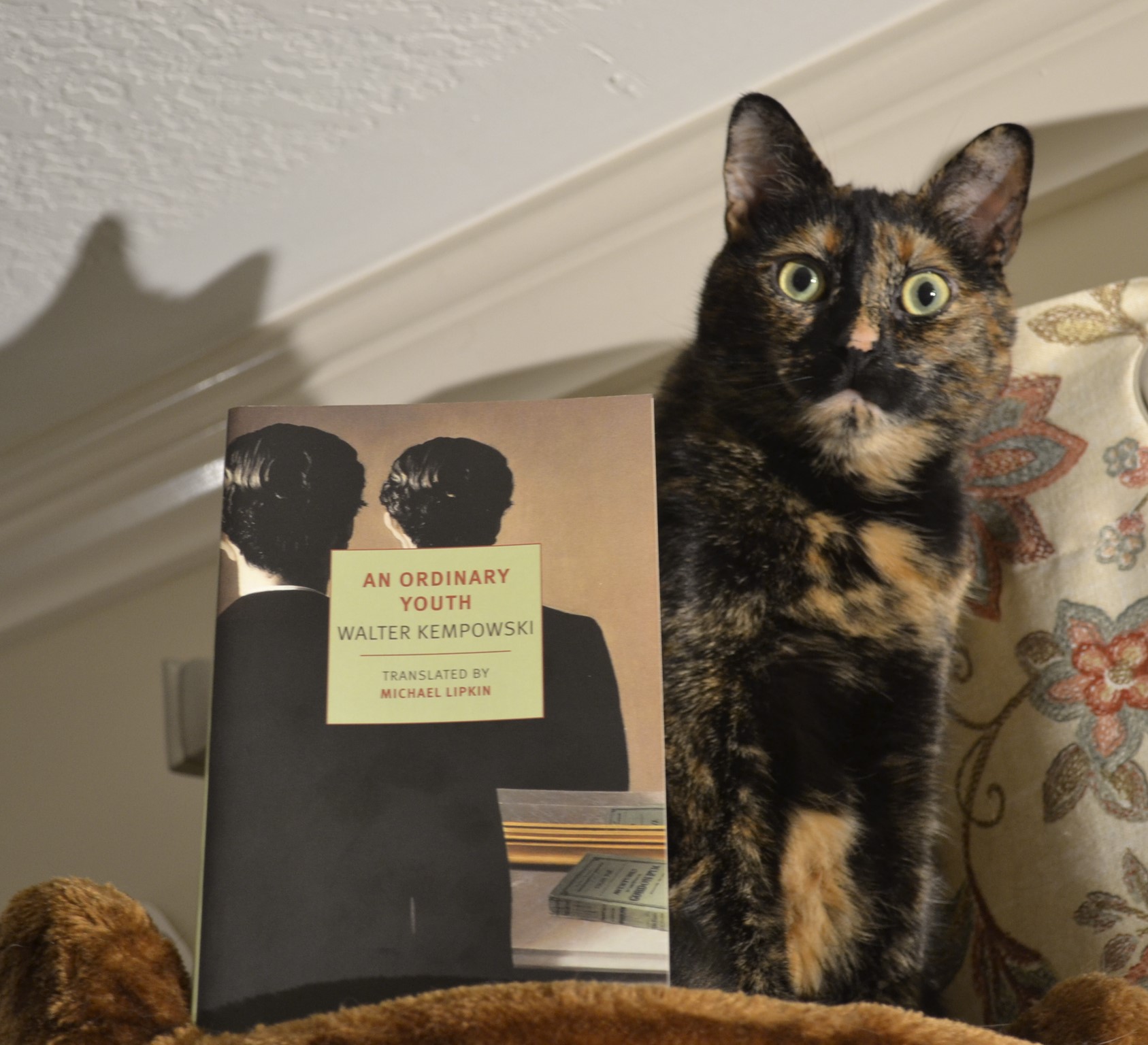A Week Fills Up Fast
For the last couple of years, I’ve been keeping a bullet journal just to help us plan out our schedule, make sure we don’t take on too many clients at once, and keep track of various appointments. It’s helped a lot. I no longer feel like the days fly by and evaporate in front of my nose without a single task getting done efficiently. However, it’s also highlighted the dreary fact that our week really does fill up far faster than I want it to.

I draw out a week on the Thursday before it commences and I rapidly see that which was once empty when I planned out the month page back in late March is now nearly full. An appointment nearly every day with a full-day event at the end of the week. Yipes. I’m hoping that someday I can manage to keep a seven-day stretch free at some point. But I somehow doubt it. The theatre season will be starting in another week and it will be summer all too soon.

Complacency
Walter Kempowski’s An Ordinary Youth is a complex novel with an equally complex structure. Kempowski draws on personal experience to illustrate the story of a German family’s complacency during the rise of Nazism and the commencement of the Second World War. Mostly the action follows a young boy named Walter as he obsesses over his tin soldiers and navigates family life. His main concerns are his mother’s doting, his father’s temper, and his brother’s collection of jazz records and whether or not he’ll get to listen to them. The war slips into the picture obliquely and insidiously. Almost like a background noise that eventually becomes deafening as it begins to take a more prominent role in Walter’s life and he leaves childhood behind.
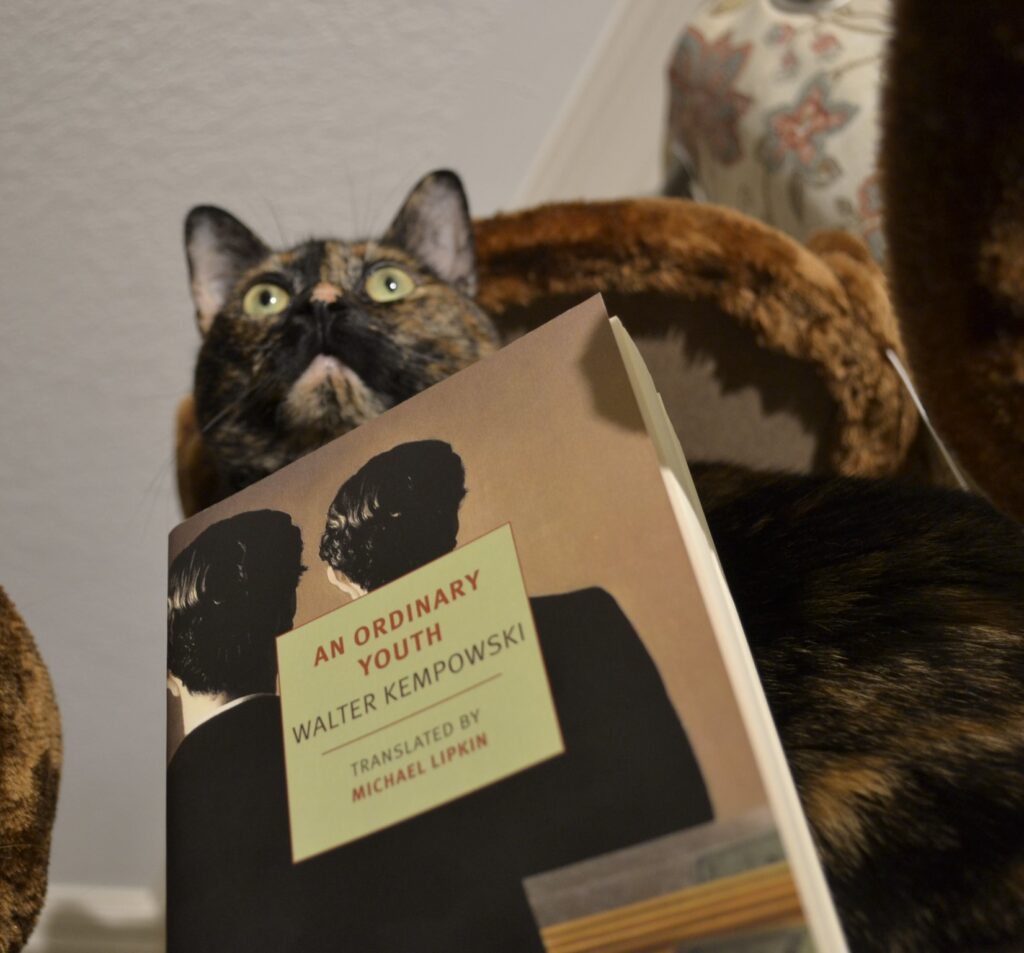
I have seen books explore similar themes, but I think Kempowski is particularly good at illustrating just how deep and how far complacency can carry individuals and families. Walter’s family keeps living their daily life without thinking about what’s going on around them or questioning what exactly their government is up to and where their Jewish neighbours are disappearing to. They know something horrible is happening but refuse to see it because they would rather keep going to work and sending their children to school and believe that their lives will not change and do not have to. That they do not have any responsibility outside of their own immediate concerns. It is incredible how little the family discusses the war or the Nazis. How little they seem to care. The few opinions that Walter’s parents’ state are just the ones fed to them by propaganda machines, and even those are constantly shifting.
An Ordinary Youth asks some difficult questions about where our responsibility lies and the consequences of being willfully blind to the world around you.

The Use of Media
One of the most unique aspects of the novel is Kempowski’s use of slogans, advertising, and broadcasts of the time to further build atmosphere and build the tension between the life of the family and the horrible things happening around them. It is through these snatches of media messages that we understanding how the world is changing around Walter, whether he is aware of it or not. They add another layer to the novel — so much so that I would strongly recommend being prepared to do a little bit of research or at least be sure to get a copy of the novel that includes good notes. It can be a bit tiring to flip back and forth between the story and the back matter, but it is worth it.
I admit I did read a large section without being diligent enough with them and because of that I don’t feel like I got the most I could out of the prose. An Ordinary Youth is definitely going in my re-read stack with a note on it to pay closer attention next time.
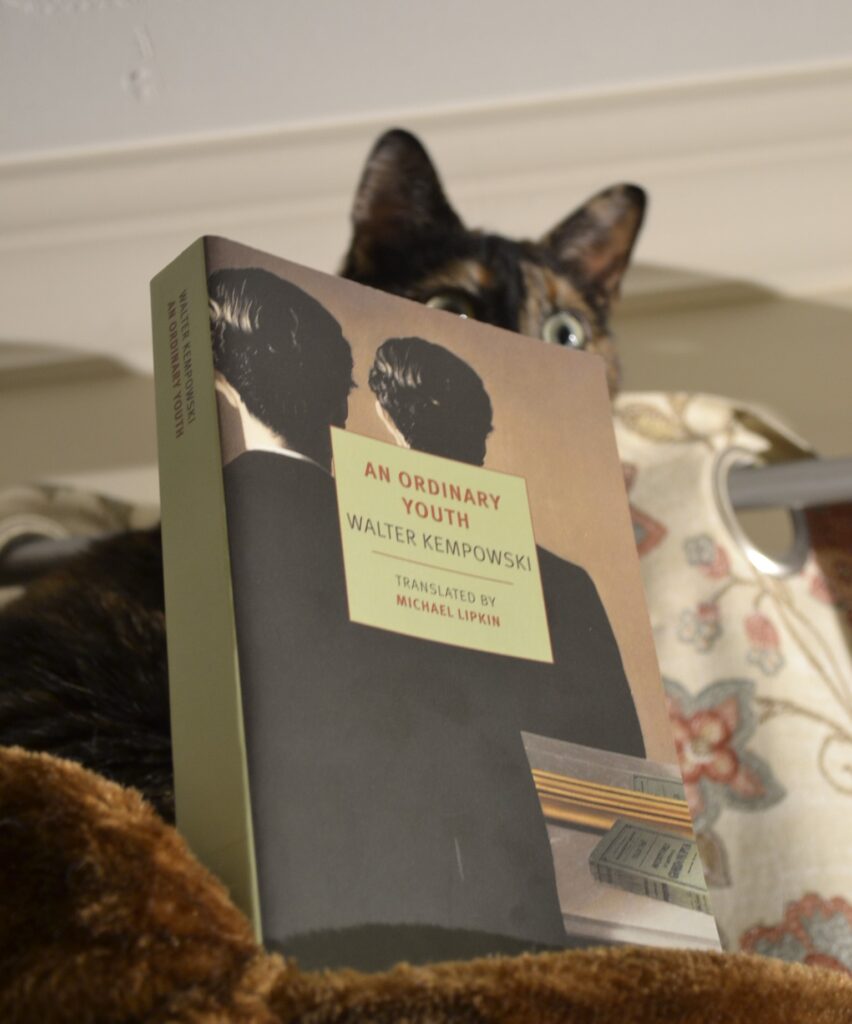
No Neat Endings
An Ordinary Youth does not offer any neat endings. Instead, it leaves the reader with a lot of questions about the facts of Walter and of his family. Some of their fates you can determine by doing some outside research into Kempowski’s life, but there are some characters that are completely swallowed by the war and history.
Usually this can be frustrating, but I think in this book it’s only appropriate that there are not any easy answers, even when it comes to the main characters or their house or their possessions. There is a sense of loss of not just the war or their sense of security but also their identity and their deluded sense of untouchability. Everything has turned upside-down and any kind of simple daily life is no longer possible as the family waits to be reunited, if they ever can be. Kempowski makes it clear at least that nothing can ever be the same and Walter’s innocence is now long, long gone.
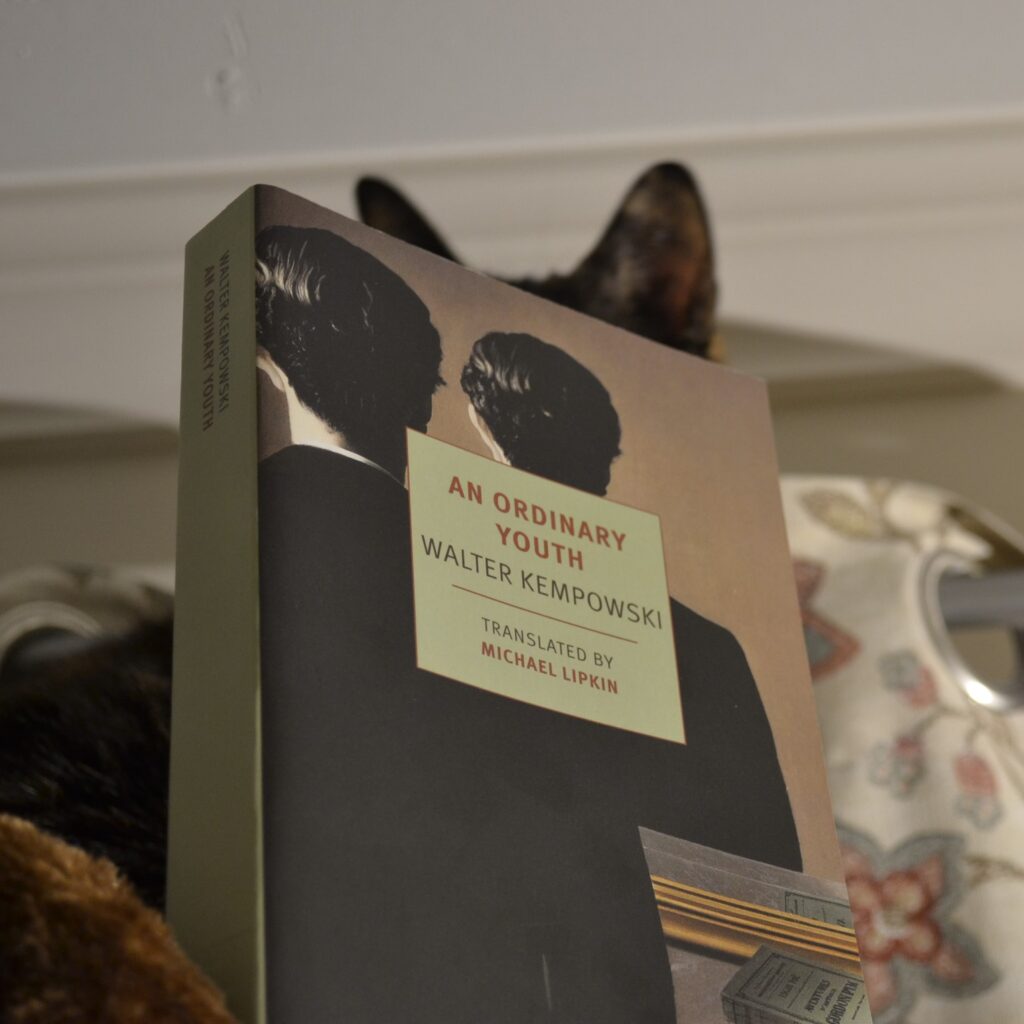
Spring Howls In
The wind is roaring tonight and we had to rush outside in the dark to take apart the bird feeder, stash away the porch rug, and make sure the bins wouldn’t just fly away. It’s still hard for me to stay calm when it feels like the weather is out of control, but it helps to concentrate on the comforting noises inside. Contented cat snores are perfect.
